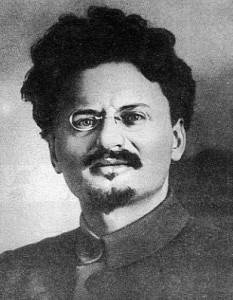Uncategorized
Fiction break: Eric Hobsbawm

Leon and I are birthday buddies
Good historians are hard to find. I was awhile ago reading this book Reappraisals by Tony Judt (that book is worth reading for sure), and he wrote this piece on Eric Hobsbawm in which he says:
Hobsbawm doesn’t just know more than other historians. He writes better, too: There is none of the fussy “theorizing” or grandiloquent rhetorical narcissism of some of his younger British colleagues (none of the busy teams of graduate researchers, either—he does his own reading). His style is clean and clear. Like E.P. Thompson, Raymond Williams, and Christopher Hill, his erstwhile companions in the British Communist Historians’ Group, Hobsbawm is a master of English prose. He writes intelligible history for literate readers.
No small praise, that. So when I saw a copy of Hobsbawm’s The Age of Empire: 1875–1914 on the discount non-fiction table at the Strand, I dug deep into my linty pockets, dumped a pile of quarters at the register, and cracked open my purchase. The book is the last in a series of four in which Hobsbawm pretty much dissects the cadaver of western civilization to find out how we got where we are (much of it with an endearing pinko slant). So, yes, I’m suggesting that you read both Judt and Hobsbawm if you’re sick of reading the Bleak Houses of the world, but, also, I was thinking of this panel I read about at the PEN World Voices Festival in which they discussed non-fiction and why (or why not) the better examples of it should be considered literature. Fun! Thoughts? I’m looking at you, Orwell.
Tags: Eric Hobsbawm, Tony Judt

Tony Judt is why I continue to buy the NYTBR. He cuts through the bullshit, never gets full of himself and its an encyclopedia of information.
Great post.
PR are you saying that Judt is now contributing to the NY Times Book Review? I used to love reading him in the NY Review of Books, but he seems have been hiding under a rock (writing a book?) for the past year or so. I haven’t found anything by him about Obama, the Gaza war, or Wall Street.
PR are you saying that Judt is now contributing to the NY Times Book Review? I used to love reading him in the NY Review of Books, but he seems have been hiding under a rock (writing a book?) for the past year or so. I haven’t found anything by him about Obama, the Gaza war, or Wall Street.
Oops. My Bad. I meant NYRB–haha! Thanks for correcting me. I think he is writing a book, as you think because you are right- he hasn’t been in there lately. He is one of the few people I can stand when covering the current political arena. Well, and many writers for the Economist, too, I guess.
That is so funny that I wrote NYTBR, which I stopped reading a few years ago (not that I won’t start again at some point, it just was ruining my Sundays.)
Guy’s a hero. I originally read about Reappraisals in the NYRoB. Full circle yo.
Guy’s a hero. I originally read about Reappraisals in the NYRoB. Full circle yo.
Raymond Williams a master of prose? Try reading a page or two of his. Dull stuff, I’m sorry to say.
But Christopher Hill is well worth reading, and E.P. Thompson for the most part, and Hobsbawm too, I guess, although I tend to prefer his early jazz criticism under the name Francis Newton. Jazz was so excitingly working-class in the thirties.
But the real prose master is the one whose portrait appears at the top of the post: Leon Trotsky.
Raymond Williams a master of prose? Try reading a page or two of his. Dull stuff, I’m sorry to say.
But Christopher Hill is well worth reading, and E.P. Thompson for the most part, and Hobsbawm too, I guess, although I tend to prefer his early jazz criticism under the name Francis Newton. Jazz was so excitingly working-class in the thirties.
But the real prose master is the one whose portrait appears at the top of the post: Leon Trotsky.